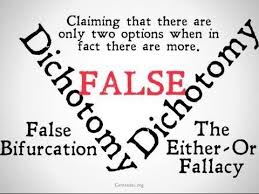But claiming that there is apparently makes for a good headline.
Knowledge and skills are intertwined; unless schools start acknowledging that critical thinking can only result from detailed content knowledge, conversations about what’s ailing American education will continue to be an exercise in nonsense.
The fact that anyone can use the phrase “knowledge-based learning” in a non-ironic way creeps me out to no end.
What’s next? Word-based reading? Number-based math? Language-based speech?
I don’t believe Common Core is really going to change many things here. It’s a set of skills; it does not lay out a coherent, specific body of knowledge. The ELA standards, at least, are so vague and repetitive as to be virtually meaningless, and would be met automatically in any rigorous traditional classroom headed by a knowledgeable, well-trained teacher.
If school districts use CC to implement a more content-rich curriculum, that is their choice. Requiring students to learn any particular set of facts, no matter how anodyne, is so politically contentious that no one would dare attempt such a thing at the national level.
Writing in the New York Times, Natalie Wexler acknowledges that:
…engineering the switch from skills to knowledge will take real effort. Schools will need to develop coherent curriculums and adopt different ways of training teachers and evaluating progress. Because the federal government can’t simply mandate a focus on knowledge, change will need to occur piecemeal, at the state, school district or individual school level.
To believe that such a change could miraculously occur “piecemeal” goes far beyond wishful thinking and into the realm of pure fantasy. And no, the fact that a bunch of people have downloaded a free online curriculum isn’t exactly going to compensate. Poor scores on CC tests are unlikely to simply “incentivize” low-income schools to shift over to a stronger emphasis on subject content, especially if their curriculums are effectively centered around test-prep. Besides, doing things in such a haphazard fashion is a pretty great way to ensure that huge disparities (geographic, economic, etc.) continue to exist.
When you take a crop of teachers indoctrinated by ed schools to believe that lecturing and memorization are forms of child abuse; pair them with administrators who use the threat of poor evaluations to keep less progressive teachers in line; and mix in an obsession with testing and accountability, you end up with a chaotic system driven by quick fixes. (But hey, no worries, the market will sort it out, right?)
In order for the focus to shift more towards teaching content, you need a critical mass of people who believe that subject knowledge is the basis for critical thinking, both in the classroom and in the administrative offices. Right now, those people are in pretty short supply. And with the number of people entering teaching dwindling, the chance of getting highly educated/knowledgeable/competent teachers, who believe even partially in the importance of transmitting knowledge, in front of classrooms on any sort of wide scale in the near future is pretty small.
The Right isn’t exactly helping here either. Rather than embrace what would actually be a conservative concept of education (classical curriculum, back-to-basics, etc.), they’re too busy screaming about school choice and privatizing everything.
It’s a perfect storm of factors, and while everyone is busy setting up false dichotomies and waiting for technology to save the day, the descent into chaos continues.
I think a commenter named Emile from NY said it best:
I don’t know in depth the various pedagogical theories about K-12 education, but from the perspective of a college professor who’s been teaching at a mid-tier university for more than 25 years, K-12 education has been in a steady decline over the past few decades, and [E.D.] Hirsch is absolutely right about the reason for it.
I ask everyone in K-12 education this: What should a college professor who is teaching a course on Enlightenment ideas do in the face of a whole class of intelligent freshmen who don’t know the dates of the Civil War, or the Second World War, or the French Revolution, or know that once upon a time there was a Roman Empire? How, exactly, would you proceed? Or how, exactly, would you proceed in a basic college course in mathematics when faced with a college class of intelligent freshmen that can’t, as a whole, move easily between fractions, decimals and percents?
People hate the word “memorization,” but I’m here to tell you students love it. People who malign memorization often ask, “Why should anyone memorize dates that they’re bound to forget?” Not every date is remembered over the long haul, but the mind loves inductive reasoning, and has a way of gathering particular dates loosely into centuries, and from there building a kind of organized closet into which more knowledge can be added.
I’m not suggesting that first graders need to be able to able to discourse in detail about ancient Mesopotamia, but seriously, is it that unreasonable for college students to be expected to have a basic understanding of what happened in the past?
